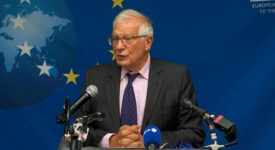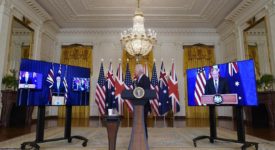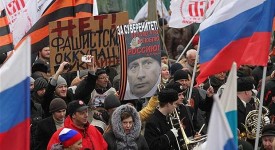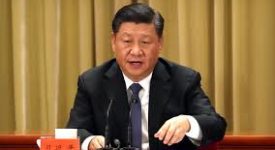The EU-US ‘Friendly’ Free-Trade-Agreement Race to Have Positive Effects on International Trade Climate
EUBULLETIN has recently talked to MEP Jan Zahradil who is, among others, also Member of Committee on Development, Subcommittee on Human Rights, and Delegation to the ACP-EU Joint Parliamentary Assembly, about the state of and challenges to the EU-US Transatlantic Trade and Investment Partnership (TTIP) negotiations and also about the geopolitical dimension of their “friendly race” to reach as many Free Trade Agreements (FTAs) as possible on a global scale.
EUBULLETIN: How do you personally see a broader geopolitical dimension of the TTIP deal between the EU and US that is currently being negotiated, especially in light of the fact that the US is also negotiating the Trans-Pacific Partnership agreement? Some experts argue that the EU and the US have been involved in a competitive liberalization, meaning they have been trying to strike deals with different partners, like in Korea.
J.Zahradil: I think this is obvious but I would not call it a competition – it is rather a kind of informal race between the EU and US on who will conclude more and better Free Trade Agreements (FTAs). On the other hand, this may have positive effects on the overall international trade climate because if the EU and US are somehow having this friendly race, that might boost the push for further liberalization of the world trade on a global scale. So, that is true that in some particular cases and in some countries, the EU and the US are involved in what I would not call a competition but instead a kind of race. Having said that, I do not see it as inevitably negative – in fact, I think that it could bring a lot of positive things.
EUBULLETIN: Looking at the deals that the EU has already concluded, like Korea or Singapore, and those still being negotiated, such as with Vietnam, what lessons should the EU learn from this experience when it is now negotiating a trade deal of an unprecedented magnitude with the US?
J.Zahradil: I think that the potential trade and investment deal between the EU and the US is incomparable to anything else. And I think that even in light of the recently concluded deal between the EU and Canada, if you take the overall size of both the EU and US economies, you can see that if TTIP goes to a real good deal, then it will be a deal of a size incomparable probably to anything ever made in the history of trade. There may be some particular inspirations taken from this or that negotiation, but I think that in many aspects, it will be very unique and that is why it can’t really draw on any previous experience.
You mentioned several cases of FTAs that have already been negotiated, like Korea or Singapore. The FTA with Korea was quite difficult and some segments of European economy are still quite unhappy about that, while the Singapore deal – not yet passed by the European Parliament – was, on the other hand, not so complicated and it is therefore necessary to see it case by case, country by country. For instance, the EU-Vietnam FTA negotiations, for which I am the rapporteur at the moment, might be probably less complicated than Korea but more complicated than Singapore.
Then we had very complicated negotiations in its latest phase with Colombia and Peru – fortunately, it went well at the end, but in its latest phase it was penetrated by rather political demands from the European side, I have to admit, and we had lots of work to do to keep it within the trade and economic agenda. So, it is really case by case. Another example is the agreement with Japan that is more or less completely frozen at the moment because the pressure particularly from the European car industry after the Korean FTA experience was so big that they were simply able to stop the process of negotiations. So, we will probably renew these negotiations in due time but for the time being, Japan is sidelined – which is a pity but that is the situation now.
EUBULLETIN: In a recently published article ‘EU-Korea FTA: One Year On’, a scholar from Korea pointed out Korean government and business circles are rather unhappy about some of the provisions that they signed, feeling that they were perhaps too soft when dealing with the EU.
J.Zahradil: The Europeans can say the same in some other aspects when it comes to their relations with Korea. So, I think that it is good evidence that probably the EU-Korea FTA deal was more or less, well, I would not say the best possible, but the only possible – simply because any deal which makes both sides similarly unhappy is probably a good deal.
Jan Zahradil is Member of the European Parliament and since 2011 also the Chairman of the European Conservatives and Reformists group in the European Parliament. He is also the President of the Alliance of European Conservatives and Reformists.







